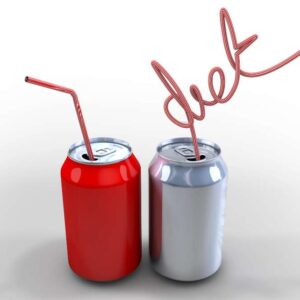
The Diverticulitis Surprise NO ONE Saw Coming
Sometimes the hardest thing to do is let go of advice you’ve been giving for years.
For decades, I’ve told patients at risk for diverticulitis to avoid nuts and seeds like the plague.
Why? Well, because that’s what every doctor tells their patients. It’s what I learned in medical school, what I read in textbooks, and what the experts recommended.
But boy, have we been wrong.
And I mean really wrong…
New research published in the Annals of Internal Medicine has turned everything we thought we knew about diverticulitis on its head. Not only are nuts and seeds not the villains they’ve been made out to be—they might actually be protective.
This is one of those moments that reminds me why I love medicine—even when it serves me a hefty slice of humble pie.
Let me back up and explain…
Diverticulitis develops when small pockets in the large intestine become inflamed. These little pouches, called diverticula, are surprisingly common as we age—about half of people over 60 have the condition called diverticulosis.
Most of the time, the pouches just sit there quietly, causing no problems. But when they get inflamed or infected, you get diverticulitis. This can cause uncomfortable digestive symptoms and often leads to significant dietary restrictions.
For years, the medical establishment has told people with these pouches who are at risk for diverticulitis to avoid nuts, seeds, popcorn, and other small, hard foods. The theory was that these tiny particles could get stuck in those intestinal pockets and cause irritation or infection.
It made sense. It seemed logical. But it turns out, it was complete nonsense.
This new research followed over 29,000 female volunteers for nearly 14 years and found that those who regularly ate nuts and seeds had a reduced risk of developing diverticulitis.
Let me say that again—women who frequently ate nuts and seeds had lower rates of diverticulitis. Earlier research found similar results in men.
Practicing good medicine means always being willing to learn and change your approach as new evidence emerges. I’m honestly excited about what this research means for people who’ve been unnecessarily restricting their diets.
Think about all the patients who’ve avoided nutrient-dense foods like almonds, walnuts, chia seeds, and flaxseeds because their doctor told them they were dangerous.
Nuts and seeds are nutritional powerhouses. They’re loaded with healthy fats, protein, fiber, vitamins, and minerals. They can help with heart health, brain function, and weight management. And far too many folks have been avoiding them due to outdated assumptions.
This research is part of a growing understanding that fiber-rich, whole food diets are generally protective for digestive health, not harmful.
The old advice to follow a low-fiber, bland diet during diverticulitis recovery is also being questioned. More recent evidence suggests that high-fiber diets might help prevent future flare-ups.
Now, I’m not saying you should immediately start downing trail mix if you have active diverticulitis. If you’re in the middle of a flare-up, you still need to work with your doctor on the best approach for your specific situation.
But for prevention and long-term management, the evidence is pointing in a very different direction than what we’ve been recommending.
P.S. “Biohack” your life like a billionaire on an average Joe’s budget—Here’s how…
Source:
Trevor Barlowe, MD, et al., Diet and Risk for Incident Diverticulitis in Women: A Prospective Cohort Study, 6 May 2025, Annals of Internal Medicine, Volume 178, Number 6, doi:10.7326/ANNALS-24-03353
Written By Dr. Scott Olson, ND
Nearly 25 years ago, failed mainstream medical treatments left Dr. Olson in constant pain – and his health in ruins. And that’s when he did something REVOLUTIONARY. He began his career in medicine – and dedicated his life to uncovering the true, underlying causes of disease.
Through his innovative medical practices in Tennessee and Colorado, Dr. Olson has helped cure countless seniors from across America of arthritis… heart disease… diabetes… and even cancer. All without risky prescription drugs or painful surgeries.
View More Free Articles
Mailbag: End Midnight Bathroom Runs with These 6 Natural Fixes
“Thank you for your Living Well Daily newsletter! Can you please share any thoughts on how to support prostate health? Especially getting up and going to the bathroom twice a night. The stream is not as strong as it once was; it takes longer to empty. Thanks!” —Night Shift Hi Shift, Thank you for being...
The Brain Secret That DEFIES Aging
We’ve all heard the bad news when it comes to brain aging—shrinking volume, fading memory, slower reaction times. But new research from the German Center for Neurodegenerative Diseases (DZNE) delivers an unexpected—and uplifting—twist. Parts of your brain don’t just resist the aging process… they can actually get stronger. Let’s take a closer look… In a...
The Simple Secret to Better Health (No Gym Membership Required)
Let’s be honest—fitness culture is downright exhausting. You’ve probably encountered those ultra-dedicated exercise enthusiasts who turn every conversation into a masterclass on extreme workouts. They’re the ones posting their 5 AM CrossFit sessions and talking about their latest “beast mode” routine. And hey, good for them! But here’s the thing—you don’t need to become a...
Could This Gut Bug Outperform Ozempic?
Unless you’ve been living under a rock you’ve likely heard of Ozempic and similar GLP-1 drugs. They’ve been making headlines for their ability to help with blood sugar control—and, in many cases, weight loss. If you’re overweight or diabetic you may have even considered taking a GLP-1. But these drugs aren’t perfect. They can be...
Mailbag: 5 Tips to Dodge the Fall COVID Spike
“COVID is spreading through my family like wildfire. We’re thinking it’s the latest variant. Are there any new recommendations for protecting yourself against it? My spouse and I have tested negative so far, but we want do everything we can to dodge it this time around.” –Dodging Variants Hi Dodging, The “Nimbus” variant (NB.1.8.1) has...
Childhood Pastime “Rewires” the Parkinson’s Brain?
If you or someone you love is living with Parkinson’s disease, you know how relentless it can be. The stiffness. The tremors. The way even small, everyday tasks—buttoning a shirt, pouring a cup of coffee—can feel like a battle. It’s more than just the physical symptoms, too. Parkinson’s changes the way the brain communicates with...
The Sweet Deception Raising Your Diabetes Risk
You’ve probably seen the commercials… A trim person cracks open a can of diet soda and smiles about the healthy choice they’ve made. After all, no sugar, no calories—what’s not to like? But according to a new study, that seemingly “smart” swap might be quietly sabotaging your health. Researchers from Australia and the Netherlands have...
The Dirty Truth Lurking in Your Laundry Basket
If you’ve ever peeled off a pair of socks after a long summer day and caught a whiff of something foul… you’re not imagining things. That smell? It’s not just sweat. It’s the result of a full-blown microbial party happening between your toes. And for seniors—especially those with diabetes or compromised immune systems—this isn’t just...
STRANGE Sleep Fix Sitting in Your Fridge Right Now
It’s not the kind of advice you hear every day… “Sleeping poorly? Eat more fruits and veggies.” From counting sheep to weighted blankets, people have come up with countless ways to try to get a good night’s rest. But what if the solution to better sleep has been sitting in your produce drawer all along?...
The Hidden Dangers of Polypharmacy
Lately, I’ve had patients coming to see me with shopping bags full of medications(yes, actual shopping bags), often prescribed by different doctors who never talk to each other. If you’re like most folks our age, your medicine cabinet resembles a small pharmacy—a few prescriptions here, some over-the-counter (OTC) remedies there, and maybe a handful of...









